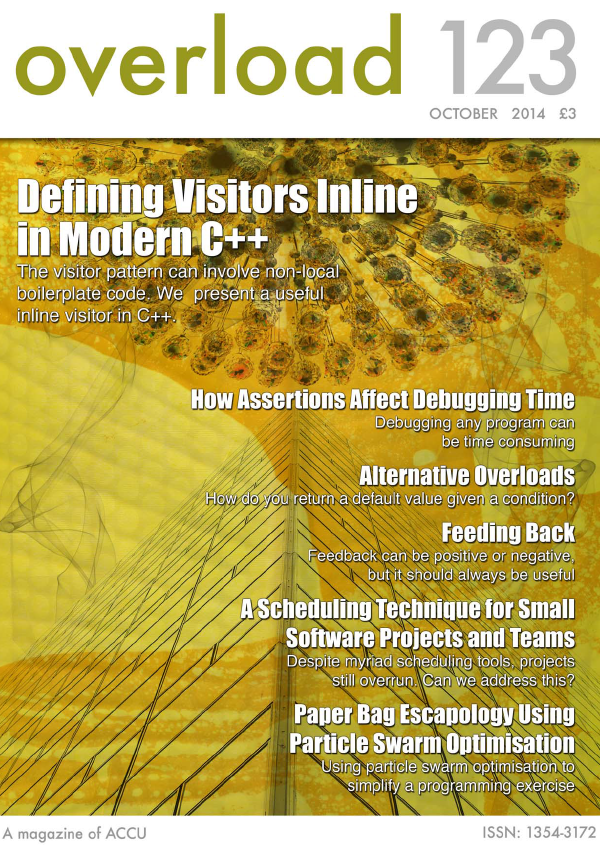Quick Q: Does unordered_map<string,MyClass>::erase() destroy my MyClass objects? -- SO
Quick A: No, but unordered_map<string, unique_ptr<MyClass>>::erase and unordered_map<string, shared_ptr<MyClass>>::erase do.
Today on SO:
std::unordered_map<std::String, myClass*>-- doesstd::unordered_map::erase()callmyClass' DTor?Assume I have some
unordered_mapof pointers to class instances, would erasing an object from that map also delete the instance?(rewording the question:) If I wanted to delete that instance, which version would be right?
if(it != map.end()) { delete it->second; map.erase(it); }or simply
if(it != map.end()) map.erase(it);?

 Modern C++, modern apps:
Modern C++, modern apps:

 Fresh over the weekend, and
Fresh over the weekend, and  Overload 123 is now available. It contains the following C++-related articles, and more:
Overload 123 is now available. It contains the following C++-related articles, and more: New in Eric's series on ranges for C++:
New in Eric's series on ranges for C++: